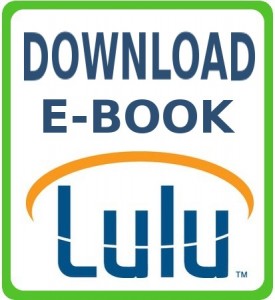I recently listened to a podcast where the speaker, Patrick Cameron, read aloud a different version of The Lord’s Prayer. Pretty much everyone knows it like this:
Our Father, who art in heaven,
Hallowed be thy name.
Thy Kingdom come, thy will be done
On Earth as it is in Heaven.
Give us this day our daily bread,
And forgive us our trespasses,
As we forgive those who trespass against us.
Lead us not into temptation,
But deliver us from evil.
For thine is the kingdom, the power and the glory
Forever and ever,
Amen.
Patrick read a more direct translation, from Aramaic to English, instead of Aramaic to Greek to Latin to Old English to modern English.
O Cosmic Birther of all radiance and vibration,
Soften the ground of our being and carve out a space within us
where your presence can abide.
Fill us with your creativity so that we may be empowered to bear the fruit of your mission.
Let each of our actions bear fruit in accordance with our desires.
Endow us with the wisdom to produce and share what each being needs to grow and to flourish.
Untie the tangled threads of destiny that bind us as we release others from the entanglement of past mistakes.
Do not let us be seduced by that which would divert us from our true purpose,
But illuminate the opportunities of the present moment.
For you are the ground and the fruitful vision,
The birther, power and fulfillment,
As all is gathered and is made whole once again.
Phenomenal. I love it! It is amazing to read and re-read, pausing and absorbing all the nuances.
It’s surprising to me that there seem to be quite a few lines that don’t directly translate across. If you’re like me and want to see them compared, let’s have a look. I will try to group them, but it isn’t easy, because they are so different.
| Our Father, who art in heaven, Hallowed be thy name. |
O Cosmic Birther of all radiance and vibration, |
| Thy Kingdom come, thy will be done On Earth as it is in Heaven. |
Soften the ground of our being and carve out a space within us where your presence can abide. Fill us with your creativity so that we may be empowered to bear the fruit of your mission. Let each of our actions bear fruit in accordance with our desires. |
| Give us this day our daily bread, | Endow us with the wisdom to produce and share what each being needs to grow and to flourish. |
| And forgive us our trespasses, As we forgive those who trespass against us. |
Untie the tangled threads of destiny that bind us as we release others from the entanglement of past mistakes. |
| Lead us not into temptation, | Do not let us be seduced by that which would divert us from our true purpose, |
| But deliver us from evil. | But illuminate the opportunities of the present moment. |
| For thine is the kingdom, The power and the glory, Forever and ever, Amen. |
For you are the ground and the fruitful vision, the birther, power and fulfillment, as all is gathered and is made whole once again. |
I find on the whole, the version on the left is more passive-sounding. Thy will be done… Give us… Lead us… The version on the right is more active-sounding. …so that we may be empowered… Let each of our actions bear fruit… Endow us… And I wonder how “illuminate the opportunities of the present moment” became “deliver us from evil.” There doesn’t seem to be any correlation there at all! It almost seems like as the prayer was translated, somewhere along the way, someone decided to remind everyone of evil and distract them from the beauty of the present moment.
I love the last line: As all is gathered and is made whole once again. Isn’t that wonderful to think about. All is gathered up — all your frazzled ends, all the ties flapping in the wind, all the frayed edges… everything scooped up in a gigantic, cosmic embrace — and is made whole again — at peace, at one, healed… whole.
~
I can see that memorizing the unscrambled, less-translated version would be harder, but then again, memorizing something can make us recite it so automatically, it is completely without thought. Our lips move while we think about something altogether different. I wonder how our lives might change if we read and thought about the unscrambled version every day? I think I might give it a try… I’ll let you know how the experiment turns out. 🙂








